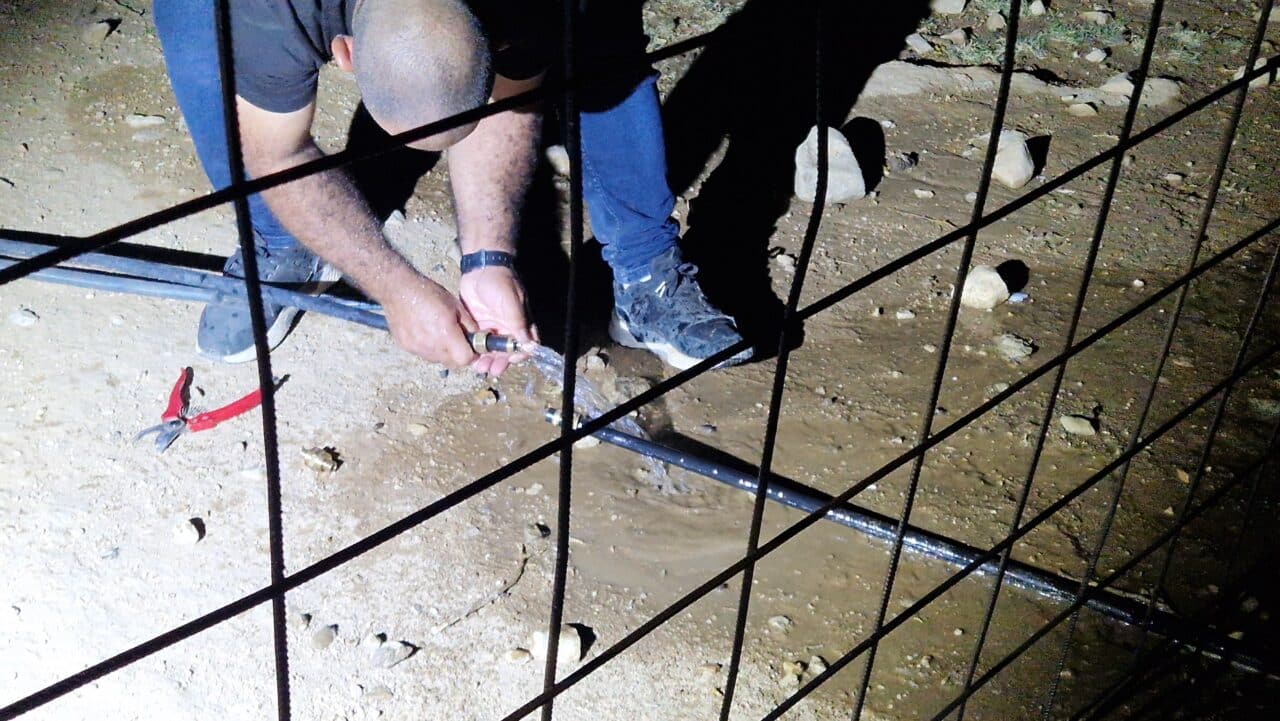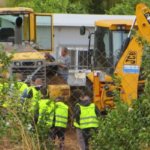6 Sept. ’11: Civil Administration head contradicts State’s response to High Court
By B’Tselem
According to media reports, the head of the Civil Administration, Brig. Gen. Moti Almoz, has ordered an end to the demolition of Palestinian structures built without a permit. The order applies in Area C, some 60% of West Bank land where Israel is responsible for civil affairs, and is pending approval of Minister of Defense Ehud Barak. Almoz gave achieving “equality of enforcement” as the reason for the order, and noted that the Civil Administration was “very far” from enforcing the law in settlements and outposts where structures were built without permits. Almoz’s comments contradict the state’s announcements to the High Court of Justice, according to which the Civil Administration’s policy is based on “the principle of equal enforcement.”

Demolition of homes in the village of al-Hadidiya, Jordan Valley. Photo: ‘Atef Abu a-Rub, B’Tselem, 21 June ’11.
Demolition of homes and other structures belonging to Palestinians is part of Israel’s discriminatory planning policy, which makes it impossible, in practice, for Palestinians to build with permits in Area C. In some Palestinian communities, the outline plans prepared by Israel restrict construction to the existing built-up area, ignoring development needs. The communities were excluded from the planning process.
In large parts of the Jordan Valley and the southern Hebron hills, Israel has routinely demolished structures in small Palestinian communities, on the grounds that they were built on land that Israel has defined as firing zones or nature reserves, or has seized as state land. In some cases, Palestinian communities had been living on the land since before Israel’s occupation of the West Bank in 1967.
At the same time, Israel has systematically refrained from enforcing the planning and building laws on settlements, even when massive construction has been carried out without a permit. This occurred, for example, in the Matityahu East neighborhood in Modi’in Illit, where hundreds of apartments were built without a permit. The state also refrains from law enforcement in settlements where structures were built without a permit on privately-owned Palestinian land, as occurred in the veteran settlement Ofra and in many outposts. According to data of the Ministry of Defense, of the Civil Administration, of and the State Comptroller’s Office, over the past 15 years, the authorities have uncovered thousands of building offenses in settlements. Figures provided to Peace Now by the Civil Administration indicate that, between 1996 and 2006, the Civil Administration opened 3,449 files involving building without a permit in settlements; enforcement action, including issuance of demolition orders, was taken in only 107, or three percent, of these cases.
B’Tselem rejects the false symmetry created by comparing Palestinian building in the West Bank and Israeli building in the settlements. Israel is obliged, under international humanitarian law, to enable Palestinian communities to build and develop according to their needs. It is not allowed to damage their property, including private and public structures. At the same time, international law forbids Israel to build settlements on the land it has occupied.


